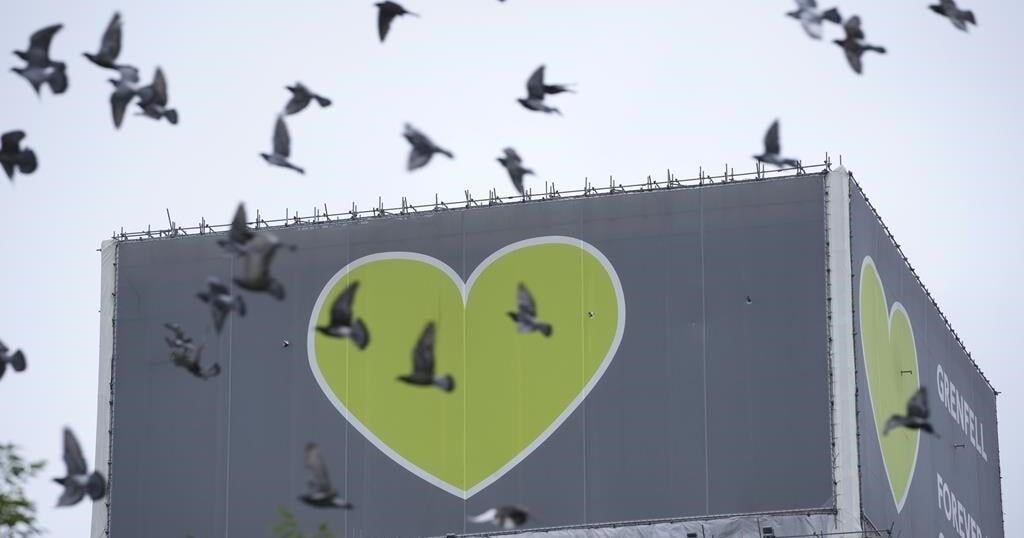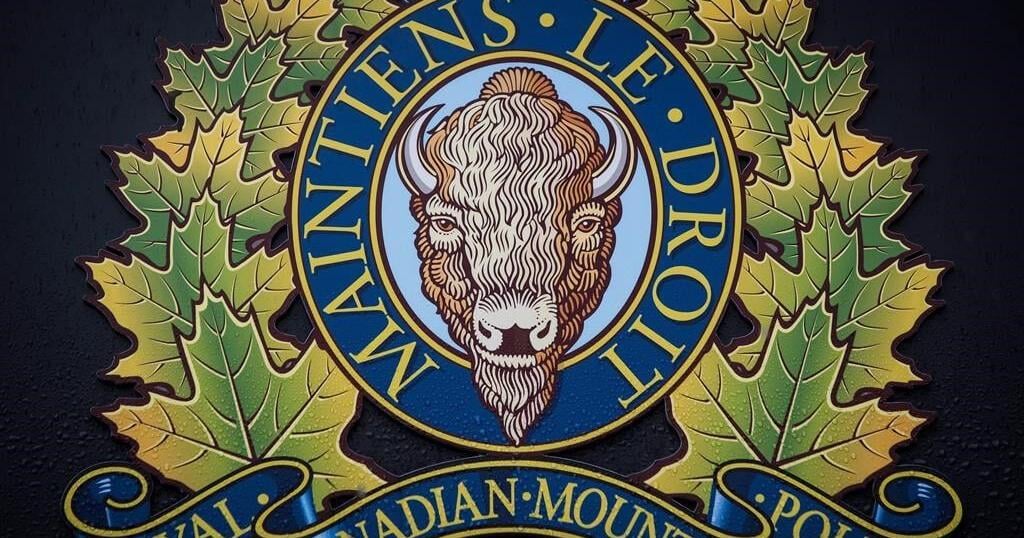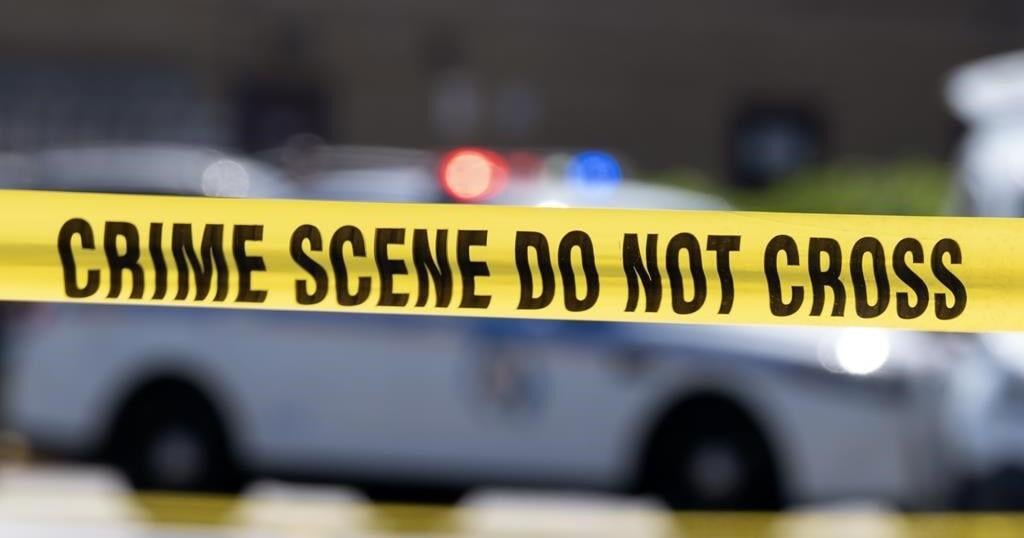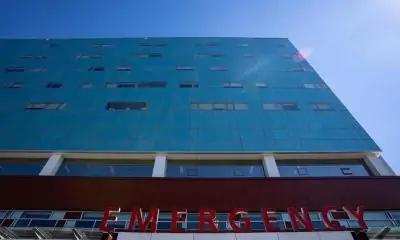LONDON (AP) — A damning report on a deadly London high-rise fire concluded Wednesday that decades of failures by government, regulators and industry turned Grenfell Tower into a “death trap” where 72 people lost their lives.
The public inquiry into the 2017 blaze found no “single cause” of the tragedy, but said a combination of dishonest companies, weak or incompetent regulators and complacent government led the building to be covered in combustible cladding that turned a small apartment fire into the deadliest blaze on British soil since World War II.
The inquiry’s head, retired judge Martin Moore-Bick, said the deaths were avoidable and “all contributed to it in one way or another, in most cases through incompetence but in some cases through dishonesty and greed.”
Prime Minister Keir Starmer apologized on behalf of the British state, saying the tragedy “should never have happened” and promising to act on the report’s recommendations.
“Today is a long-awaited day for truth but it must now lead to a day of justice,” he told Parliament.
While the report may give survivors some of the answers they have long sought, they must wait to see whether anyone responsible will be prosecuted. Police will examine the inquiry’s conclusions before deciding on charges, which could include corporate or individual manslaughter.
They say prosecutions are unlikely before late 2026.
Natasha Elcock of the group Grenfell United urged authorities to deliver justice.
“We paid the price for systematic dishonesty, institutional indifference and neglect,” said Elcock, a survivor who lost her uncle in the fire.
The fire broke out in the early hours of June 14, 2017, in a fourth-floor apartment and raced up the 25-story building like a lit fuse, fueled by flammable cladding panels on the exterior walls.
The tragedy horrified the nation and posed one central question, the report said: “How was it possible in 21st century London for a reinforced concrete building, itself structurally impervious to fire, to be turned into a death trap?”
The search for answers focused on a refurbishment completed in 2016 that covered the 1970s building in aluminum and polyethylene cladding — a layer of foam insulation topped by two sheets of aluminum sandwiched around a layer of polyethylene, a combustible plastic polymer that melts and drips on exposure to heat.
The report was highly critical of companies that made the cladding. It said they engaged in “systematic dishonesty,” manipulating safety tests and misrepresenting the results to claim the material was safe.
It said insulation manufacturer Celotex was unscrupulous, and another insulation firm, Kingspan, “cynically exploited the industry’s lack of detailed knowledge.” Cladding panel maker Arconic “concealed from the market the true extent of the danger,” the report said.
The three companies expressed sympathies to the bereaved, but all denied responsibility for the deaths. Arconic said its products were not unsafe. Kingspan said its “historical failings” were not “causative of the tragedy.” Celotex said the decision to combine its insulation with combustible cladding panels had been made by others.
The inquiry said the combustible cladding was used because it was cheap and because of “incompetence of the organizations and individuals involved in the refurbishment” -– including architects, engineers and contractors — who all thought safety was someone else’s responsibility.
It concluded the failures multiplied because bodies in charge of enforcing building standards were weak, the local authority was uninterested and the “complacent” U.K. government — led in the seven years before the fire by the Conservative Party — ignored safety warnings because of a commitment to deregulation.
The inquiry has held more than 300 public hearings and examined around 1,600 witness statements.
An initial report published in 2019 criticized the fire department for initially telling residents to stay put and await rescue. By the time the advice was changed, it was too late for many on the upper floors to escape.
London Fire Brigade came in for further criticism for a “chronic lack of effective management and leadership,” poor training in high-rise fires and outdated communications equipment.
The Grenfell tragedy prompted soul-searching about inequality in Britain. Grenfell was a public housing building set in one of London’s richest neighborhoods, near the pricey boutiques and elegant houses of Notting Hill. The victims, largely people of color, came from 23 countries and included taxi drivers and architects, a poet, an acclaimed young artist, retirees and 18 children.
The report said the inquiry had “seen no evidence that any of the decisions that resulted in the creation of a dangerous building or the calamitous spread of fire were affected by racial or social prejudice,” though it said the public body that managed Grenfell had failed to treat residents with “understanding and respect.”
The prime minister said the tragedy “poses fundamental questions about the kind of country we are, a country where the voices of working class people and of those of color have been repeatedly ignored and dismissed.”
After the fire, the U.K. government banned metal composite cladding panels for new buildings and ordered similar combustible cladding to be removed from hundreds of tower blocks across the country. But the work hasn’t been carried out on some apartment buildings because of wrangling over who should pay.
Starmer said the work had been “far, far too slow.”
The report made multiple recommendations, including tougher fire safety rules, a national fire and rescue college and a single independent regulator for the construction industry to replace the current mishmash of bodies.
The ruined tower, which stood for months after the fire like a black tombstone on the west London skyline, still stands, covered in white sheeting. A green heart and the words “Grenfell forever in our hearts” are emblazoned at the top.
Sandra Ruiz, whose 12-year-old niece, Jessica Urbano Ramirez, died in the fire, said that “for me, there’s no justice without people going behind bars.”
“Our lives were shattered on that night. People need to be held accountable,” she said. “People who have made decisions putting profit above people’s safety need to be behind bars.”
___
Associated Press writers Danica Kirka and Pan Pylas contributed to this report.

























